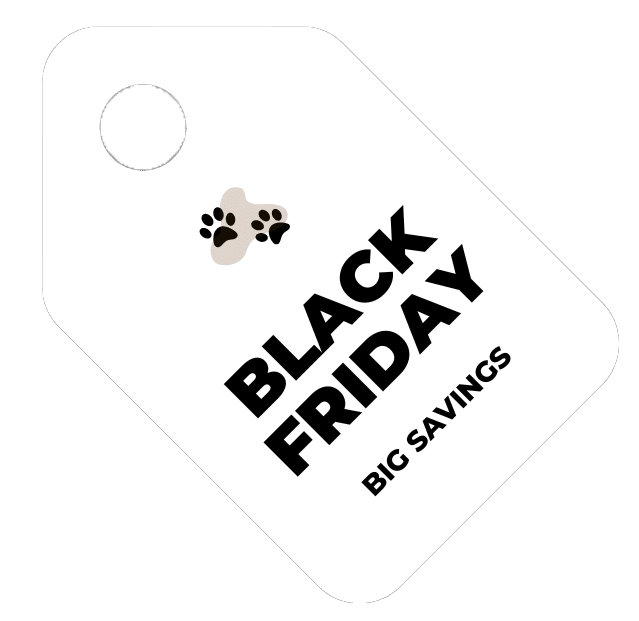The veritable kings and queens of sass, cats have earned the reputation of being notoriously hard to please. Whether it’s a preference for a particular kind of toy, a need for an always-tidy litter box, or a tendency to destroy furniture legs during particularly long winters, if your cat doesn’t like something, you’ll know it. Although some of your furry friends’ meows of protest are easily explained, it’s wise to take notice of any significant changes, like a lack of appetite.
4 Reasons Your Feline Might Not Be Eating
If your cat doesn’t eat, their health will suffer, and their overall happiness and quality of life may be affected. It’s vital to understand some of the potential reasons your feline friend might not be eating in order to get your cat back to her happy and healthy self.
Your Cat Might Be Sick
Loss of appetite is often a key indicator that something isn’t quite right. While something as simple as an upset stomach or splinter in a paw could hinder your cat’s health, a lack of eating could also be a sign of more severe health problems. If you notice significant changes in your furry friend’s appetite, monitor them closely for other behavioral changes, like increased tiredness or a lack of interest in usual activities. If you think your cat might be sick, take them to the vet as soon as possible.
Medication Side Effects
Regular visits to the vet are crucial to maintaining your cat’s health and fighting off common sicknesses. However, the introduction of new medications and routine vaccinations have the potential to affect any kitty’s appetite. Just like humans can feel less than 100 percent during these adjustment periods, so can your cat. While a lack of appetite due to medications or vaccinations is generally short-lived, keep an eye on your feline to make sure their eating habits do return to normal.
Your Cat Has Food Aversions
Do you have any favorite foods that your partner, kids, or friends don’t enjoy? Similar to varied human palates, not every cat enjoys the same food. If the flavor, shape, or texture of your cat food is no longer appealing, your partner in crime may stop eating. This aversion can develop even if you’re feeding your cat the same food they’ve enjoyed without issue for some time.
Stressed Out Cat
Cats can experience tension and anxiety, just like people. Have you frequently been traveling without your feline friend, experienced a recent change in scenery (like a move), or been under pressure for one reason or another? If so, your cat may be struggling to find physical or emotional rest. Intense stress can be expressed physically through behaviors like lack of appetite or destruction of furniture. If you notice your pet is showing signs of stress, do what you can to make them comfortable. Whether this means finding a reliable border while you travel or simply making more daily time for your pet, resolving stress should result in their appetite returning.
Tips to Help Improve Your Cat’s Appetite
Just knowing why your furry companion isn’t eating is not enough if their appetite still hasn’t returned. Check out these tips and tricks to help encourage your cat to eat—but be sure to coordinate with your vet, who will be able to diagnose any underlying health issues. You should also check with a vet before making any changes to your cat’s diet or supplement routine.
Try a Change in Diet
From cold-cut sandwich meat and canned options to dry kibbles, many forms of food are healthy for your pet. Have you noticed your cat’s food sitting in their dish for an extended amount of time or a steady decrease in their normal appetite? If the answer is yes, consider introducing some variety to their diet and switching up their food type for a time.
Imagine if you had to eat the same thing, meal after meal, for years. You’d be sick of that given food in no time! We all appreciate a little variety in our diet, and your cat may, too. Consider swapping out your feline’s regular meals for kitten food and see if their appetite improves/
Introduce a Supplement
The use of vitamins—coupled with healthy, regular eating habits—has risen drastically within the pet industry in the past few years. Like healthy pet food, vitamins promote healthier musculoskeletal, immune, and digestive systems, and more. Consider supplementing your cat’s eating habits with much-needed vitamins like B12, C, and D, as well as nutrient-rich substances like elk velvet antler. This will help ensure that your furry friend will be getting all the nutrients their body needs to remain your happy and healthy companion for years to come.
How Wapiti Can Help
Wapiti Labs’ unique elk velvet antler (EVA) supplements are designed to naturally support your cat’s health using key organic compounds and nutrients. Our Strength or GI supplement for cats could be the perfect addition to any picky kitty’s routine. Promoting healthy cartilage and joint function, proper circulation, normal recovery time, and kidney and liver function, Wapiti’s EVA supplements can help keep your cat in peak condition. Check out our website to learn about why we stand confidently behind the benefits of EVA, or contact our team today to learn more about supporting your cat’s health.





